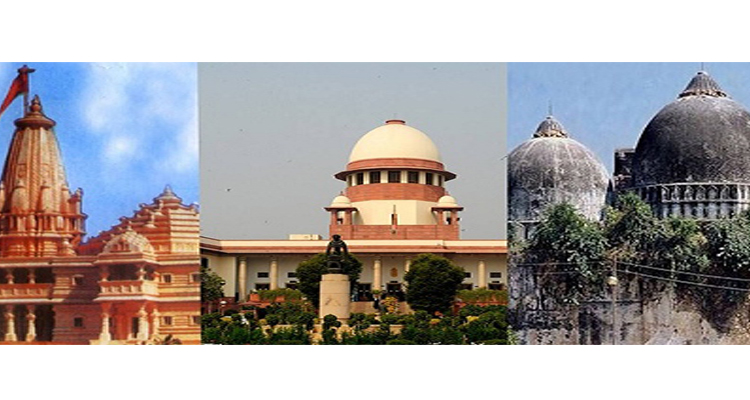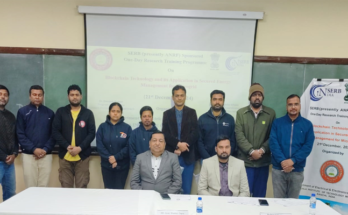 JNS: Supreme Court clears the way for the construction of a Ram Temple at the disputed site, directs Centre to allot a 5-acre plot to the Sunni Waqf Board for building a mosque. A Constitution Bench led by Chief Justice of India Ranjan Gogoi on November 9 delivered its judgment in the Ramjanmabhoomi-Babri Masjid title dispute.
JNS: Supreme Court clears the way for the construction of a Ram Temple at the disputed site, directs Centre to allot a 5-acre plot to the Sunni Waqf Board for building a mosque. A Constitution Bench led by Chief Justice of India Ranjan Gogoi on November 9 delivered its judgment in the Ramjanmabhoomi-Babri Masjid title dispute.
The five-Judge Bench allotted the disputed land for the construction of a temple. The Sunni Waqf Board will be given five acres of alternative land in a suitable, prominent place in Ayodhya.
It ordered the Centre to formulate a scheme under the Ayodhya Act 1993 within three months to set up a Trust for temple construction and hand over the inner and outer courtyard of the disputed land. Till the Trust is formed, the ownership of the site will rest with the Centre.
The Bench dismissed the Shia Wakf Board’s petition claiming the disputed site belonged to them.
The suit filed by Nirmohi Akhara for sherbaiti rights has been time-barred and hence dismissed. The court said the Akhara might be made a part of the Trust.
The court upheld the belief of Hindus that Lord Ram was born at the disputed site in Ayodhya. It also upheld that the mosque was neither abandoned nor seceded by the Muslims.
The court, however, said the mosque was not built on vacant land, citing the findings of the Archaeological Survey of India.
Opinions:
Ayodhya verdict is very balanced, a victory of people: C S Vaidyanathan, lawyer for deity Ram Lalla.
We respect the judgment but are not satisfied, will decide further course of action: Sunni Waqf Board.
We respect, accept verdict, says Ajmer Dargah
SC appreciates the role of mediators Justice Kalifulla, ace mediator Sriram Panchu and Sri Sri Ravi Shankar who came very close to the settlement
In the scheme by Board of trustees, appropriate representation be given to Nirmohi Akhara.
Centre will hand over the disputed site to the Board of trustees and a suitable alternative plot of land measuring 5 acres at Ayodhya will be given to Sunni Waqf Board.
SC says it will give relief in suits filed by Sunni Waqf Board and deity
Desecration of the mosque by placing idols in 1949 and demolition is contrary to law: SC
Sunni Waqf board failed to make claim on adverse possession over the mosque as it remained a contested site between Hindus and Muslims: SC
Destruction of a mosque in 1992 was in breach of SC order, says CJI-led bench




